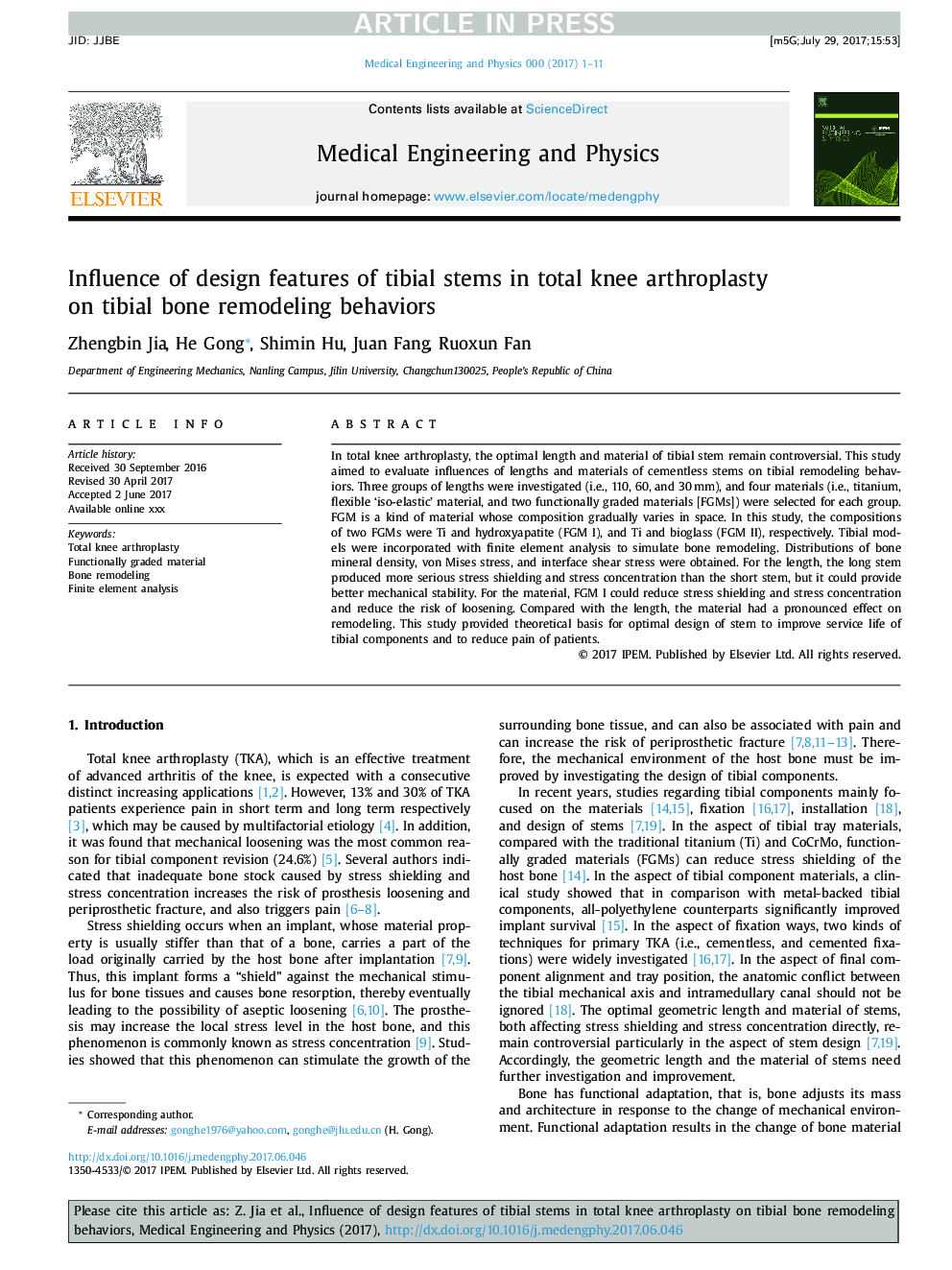| Article ID | Journal | Published Year | Pages | File Type |
|---|---|---|---|---|
| 5032597 | Medical Engineering & Physics | 2017 | 11 Pages |
Abstract
In total knee arthroplasty, the optimal length and material of tibial stem remain controversial. This study aimed to evaluate influences of lengths and materials of cementless stems on tibial remodeling behaviors. Three groups of lengths were investigated (i.e., 110, 60, and 30â¯mm), and four materials (i.e., titanium, flexible 'iso-elastic' material, and two functionally graded materials [FGMs]) were selected for each group. FGM is a kind of material whose composition gradually varies in space. In this study, the compositions of two FGMs were Ti and hydroxyapatite (FGM I), and Ti and bioglass (FGM II), respectively. Tibial models were incorporated with finite element analysis to simulate bone remodeling. Distributions of bone mineral density, von Mises stress, and interface shear stress were obtained. For the length, the long stem produced more serious stress shielding and stress concentration than the short stem, but it could provide better mechanical stability. For the material, FGM I could reduce stress shielding and stress concentration and reduce the risk of loosening. Compared with the length, the material had a pronounced effect on remodeling. This study provided theoretical basis for optimal design of stem to improve service life of tibial components and to reduce pain of patients.
Related Topics
Physical Sciences and Engineering
Engineering
Biomedical Engineering
Authors
Jia Zhengbin, Gong He, Hu Shimin, Fang Juan, Fan Ruoxun,
